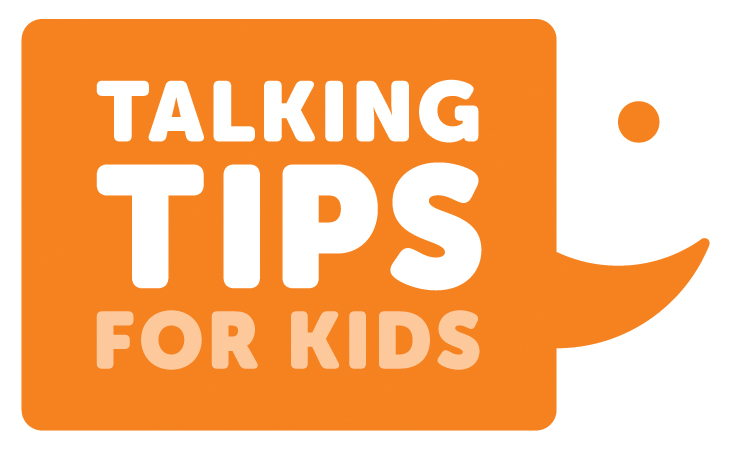I was excited to find Talking Tips for Kids because I need some ideas on helping Grayson communicate! This child can talk, but he chooses NOT to! If I ask him to say a word, he can usually say that word, but most of the time he can get across what he wants by pointing, grunting or using his “words” that only the family knows. I love how easy this website is to navigate and I love me some videos because I feel like I am ALWAYS reading and researching and it is a nice change of pace to be able to sit back, drink some tea and WATCH my information as opposed to reading it! You can even download their free app to have the information at your fingertips :)

They do offer FREE videos and then their premium videos have a fee attached. Take some time to browse their site and you can find the videos that best fit your child’s needs and stage. Fiona Barry is the main speaker on the videos. She is a speech and language therapist and a mom of 2 boys so she has a lot of experience on this topic! She has 5 tips for you to help your child’s speech and language skills:
1. Tune In
You need to tune into your child’s level of communication– even from birth – so that you can act as a responsive conversation partner. Follow your child lead’s in play and conversations and you’ll get so much more from your interaction with them.
2. Speak Up
Once you’re following your child’s lead you’ve got their attention and interest. It’s time to add some language in. Talk about the here and now with young children – if you see it – say it. Find as many times in the day when you can chat as possible. Talk about what you can see out of the car or bus window, chat about the washing as you hang it up or comment on what your child’s doing as they play. Make time for talk.
3. Love Books, Love Learning
The message from recent studies is loud and clear – nurture a love of reading in your child and you’ll set them up for being capable talkers, readers and writers as they grow up. To be able to read and write a child needs to be able to use and understand spoken language first. They also need to find reading and writing fun and exciting. You are the bridge from ‘no way ‘ to ‘hooray!’ when it comes to making books the champion in the house instead of the TV or games console. Make book reading part of your family life.
4. Songs For Today, Words For Life
Singing songs and nursery rhymes with your child, even from before birth, provides them with a great springboard into some of the underlying skills needed for learning to talk, read and write. Songs provide the perfect structure for learning language because they’re predictable and repetitive. But not only this – songs are just down-right good fun! They help you to bond with your child and are excellent for soothing cross, upset or bored little ones. A song a day keeps the tears away.
5. Listening Comes First
Communication is not just about talking – for a conversation to flow we need to listen to what the other person is saying. Children need to develop good attention and listening skills not only to learn new words and sentences but also to become good at conversations. Children learn by example so when we listen to children they learn how to be good listeners themselves.
I would love to hear ways that you work with your child on their communication and resources you have come across along your parenting journey!






{ 0 comments… add one now }